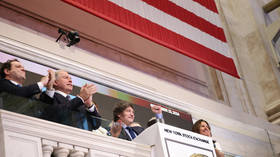Energy News Beat
A yawning gap still exists between the demands of developing countries, led by India, Brazil and South Africa, for climate finance and the amount that Western governments are willing to offer as COP29 enters a fourth day of negotiations.
Both rich and poor nations are playing hardball, Energy Intelligence has learned, based on conversations with officials from the EU, India, Bangladesh, South Africa and other participants at the climate summit in Baku.
A difference of at least $1.2 trillion in demands between the Global North and South raises questions as to whether host country Azerbaijan can get the warring parties to meet halfway toward a unified goal at COP29.
A primary task of countries attending the UN summit is to forge an agreement that ensures up to trillions of dollars in climate finance. Rich donor countries pledged in 2009 to collectively contribute $100 billion a year to support developing nations in their climate actions.
Parties to the United Nations Framework Convention on Climate Change (UNFCCC) are tasked with getting the draft text on the climate finance goal ready by Saturday for finalization next week.
But there are disagreements on the total finance number and how much should come from public money, loans and private finance, with rich donor countries digging their heels in.
A report published Thursday by the UN-backed Independent High-Level Expert Group on Climate Finance concluded that developing countries would need $1.3 trillion a year by the 2030s to cope with worsening climate impacts.
Funds from the budgets of rich OECD nations will cover for adaptation and resilience, while private sector funds can be used for clean energy projects, the report said.
The Global South, which accuses wealthy nations of exhausting half the earth’s carbon budget, is pushing for a minimum funding target of $1.3 trillion annually in public financing, according to South Asian officials and other participants. However, developing countries have not given an official figure. After including other funding sources, the bill soars to around $5 trillion, officials from developing nations said.
Indian officials say reparations are huge due to the historical destruction of the planet by rich countries.
Lowball Figure
EU negotiator Jacob Werksman, who is also principal adviser to the European Commission’s Directorate General for Climate Action, told Energy Intelligence that the EU has fixed a floor of $100 billion as a starting number.
This is the same as the existing floor pledged by rich donor countries in 2009 in Copenhagen. Those payments were only fully met in 2022.
“The big outcome is, of course, the delivery of the New Collective Quantified Goal [NCQG]” for climate finance, said Werksman, an attorney specializing in global environmental law. That will indicate what developed countries and other parties are prepared to contribute in the form of private finance — both from public sources but also by mobilizing essential private sector forces. Such resources will be necessary for parties to implement their nationally determined contributions — or climate actions plans, he said.
“And of course, the crucial number. How much beyond the $100 billion for the private sector goal and the private sector money that immediately mobilizes?’’
Rich nations may agree around $300 billion in core public financing for climate, said RR Rashmi, a distinguished fellow at The Energy and Resources Institute global think tank and a former Indian negotiator at COP summits.
He cited a 2023 G20 Independent Experts Group report that estimated developing countries would need annual incremental investment for climate of $1.8 trillion by 2030.
Two-thirds of that would be raised domestically by developing countries and the remaining $600 billion from multilateral development banks (MDBs), divided equally between official development finance and private capital. That would leave $300 billion on the table for developing countries under the NCQG from public funds.
Wide Divisions
Meanwhile, a top negotiator from a Central American country at COP29 talks said the wide divisions between Global North and South were reflected in the slow pace of negotiations.
Two key officials from the US and India, familiar with NCQG talks, said the text on climate finance negotiations began as a two-page document, drafted in the UNFCCC secretariat. In June, it ballooned into a 30-page booklet at the Bonn SB 60 climate meeting after parties introduced several conditions.
Werksman said that negotiations cannot proceed in the current form, so officials are trying to cut it down to a two-page document, hopefully by Saturday and may conclude a deal next week. But “from the voices in the negotiating rooms, you can tell that parties are still significantly far apart on the key elements of the design of NCQG,” he added.
Werksman told Energy Intelligence that the NCQG was not a single fund but a number that would be mobilized from various sources. The nature of the financing means there would be no sectoral allocations for adaptation, for example, or loss and damage or mitigation, he explained.
Public Funds
Asked if the $100 billion floor would be in the form of public funding or private investment, Werksman said that the core number, as yet undecided, would be publicly funded. Of the existing $100 billion annual funding provision for climate finance, agreed in 2009, 85% was public finance.
A similar arrangement may be in place in the NCQG. Beyond the core, he explained there would be guarantees and that public financing would enable MDBs and the private sector to raise much more money in the markets to lend to climate projects in developing nations.
The Copenhagen-designed climate finance arrangement channels part of the $100 billion via a Green Climate Fund (GCF), managed by both developing and developed nations in the UNFCCC, said the official from Central America.
An official from South Asia involved in several COP talks said that only around $20 billion of the $100 billion was public funding, of which just $11 billion was distributed via the GCF. The rest made its way via multilateral funding institutions.
He said the EU and US channel most of the funds via the World Bank, International Monetary Fund, Asian Development Bank and European Investment Bank because they control the board. They try to avoid the GCF because developing countries have an equal say, the official added.
Werksman confirmed that $100 billion in climate finance had been fully disbursed, something that rich countries claimed in private talks with other parties at COP29, the Central American official said.
Of the $115.9 billion disbursed in 2022, only around $22 billion was mobilized private finance attributed to developed countries, according to a UNFCCC document. The rest comprised bilateral public finance, multilateral public finance attributed to developed countries and export credits.
Nonprofit Oxfam disagrees, showing disbursals toward climate finance of $28 billion-$35 billion that year, comprising $16 billion-$23 billion of bilateral grants and the rest as multilateral grants.
“Who will be joining the current developed country donor base as contributors to the public sector and up to that goal? Another issue that’s still open for negotiation,” said Werksman.
Given the forthcoming change of administration in Washington, the Central American official said whatever number may be finalized next week, finding donors for the NCQG may take years.
Source: Energy Intelligence
Is Oil and Gas An Investment for You?
ENB Pub Note: A post from X and the Wealth Transfer of the Green Energy Policies – WorldBank lost track of at least $24 Billion in funds fighting climate change. Now they want trillions.
The post COP29: At Least $1.2 Trillion Needed to Fill Climate Finance Gap appeared first on Energy News Beat.


















